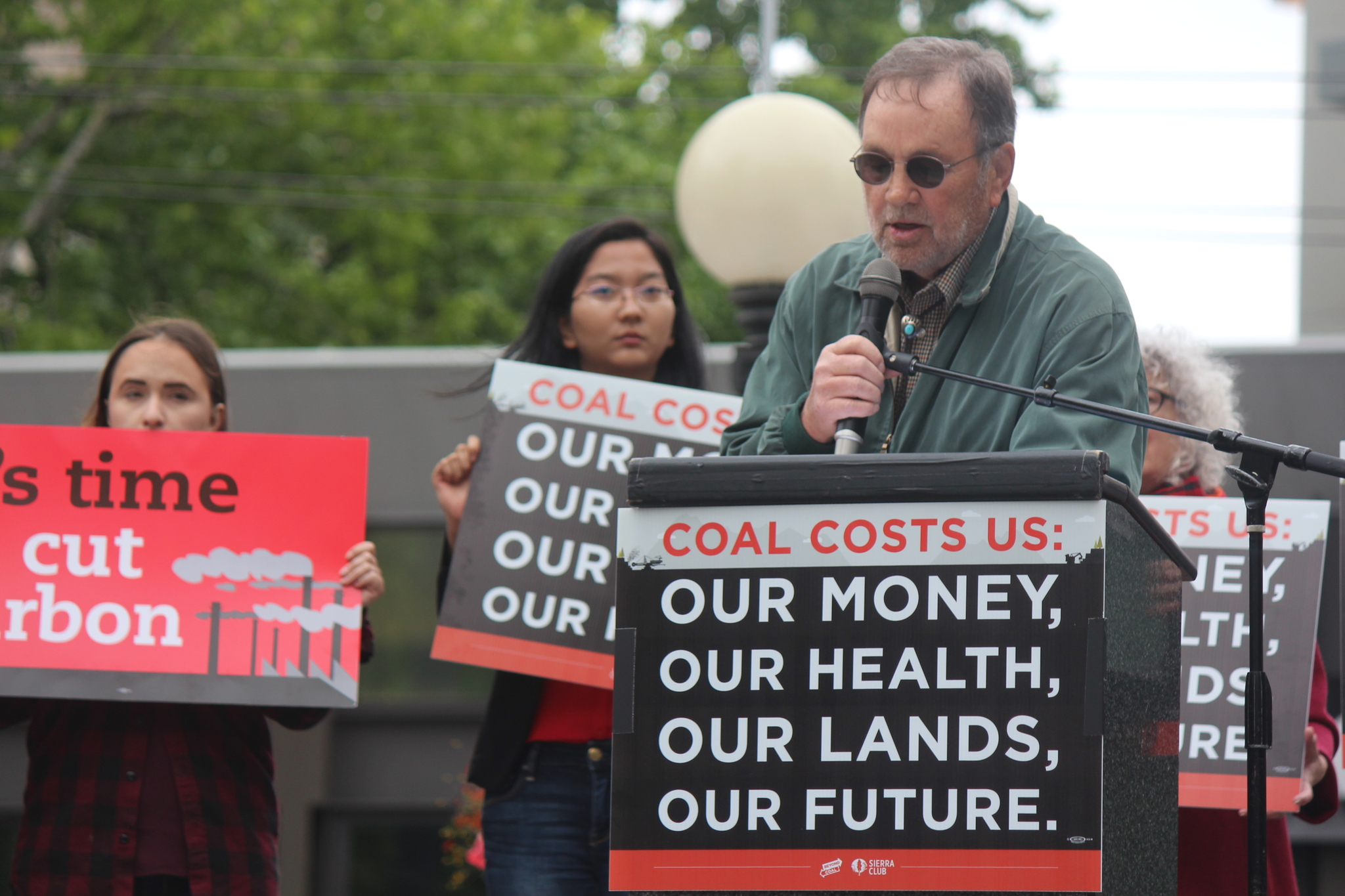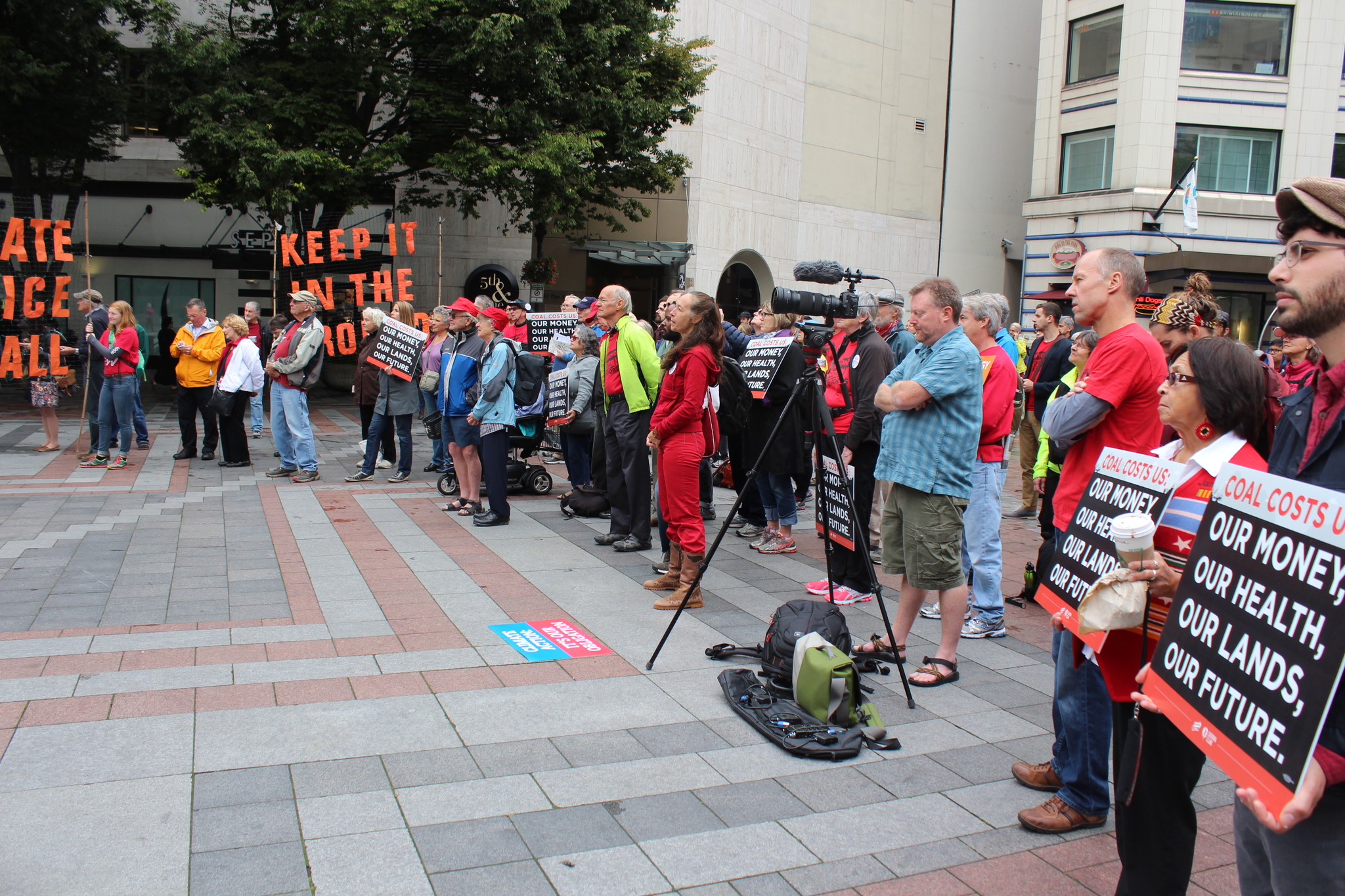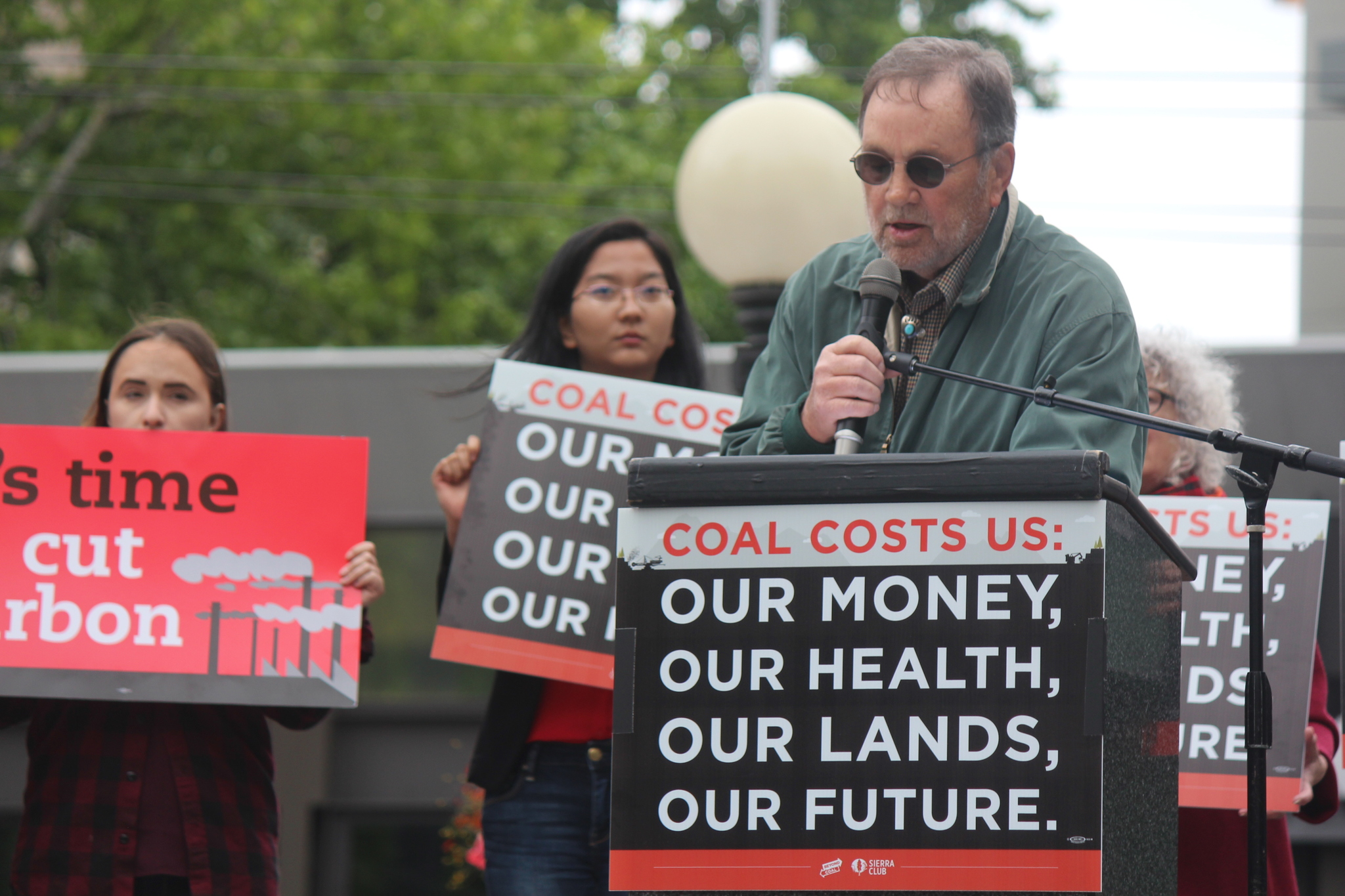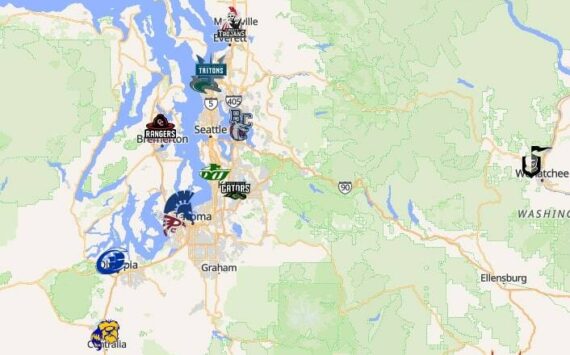Activists, tribespeople, fishermen, politicians, and even a representative from Wyoming’s Powder River Basin turned up to take the stage at Westlake Park Tuesday morning — all to give the decades-long federal coal leasing program the middle finger, more or less.
“I come from upstream,” Bob LeResche, chairman of the Powder River Basin Resource Council, in Sheridan, Wyoming, told the eager crowd, “And I want to welcome you to our 40-year fight.”
The U.S. coal industry may be in a shambles, but it still produces 33.2 percent of the nation’s energy — and nearly half of that coal comes from federal lands.
The Bureau of Land Management (BLM) currently leases 570 million acres of public land to coal companies — often at bargain basement prices — and the process for how that’s done hasn’t been touched for over 30 years. Many people, from scrappy environmental groups to the U.S. Department of the Interior, have long criticized the program as shortchanging the American public by vastly underestimating the market value of the coal. Now, that’s shifting: In January, Secretary of the Interior Sally Jewel launched a three-year process for revamping the system, starting with a moratorium on new coal leases until we get a new process figured out. Among her stipulations: Americans should get more bang for their buck on this, and so should the climate.
“We have an obligation to current and future generations to ensure the federal coal program delivers a fair return to American taxpayers,” she said in a January statement, “and takes into account its impacts on climate change.”
Perhaps, then, to throw a bone to the environmental movement (i.e. by making sure not every public hearing about the federal coal leasing program is held in coal country) the BLM held a six-hour-long public forum at the downtown Seattle Sheraton on Tuesday — one of just six hearings like it in the nation.
Naturally, coal opponents showed up in droves.
“The science is in and climate change is upon us,” said activist Tom Palmersheim, who attended the 9 a.m. rally at Westlake and planned to sign up for public testimony during the hearing. “Coal is last century’s solution. I think to subsidize something that’s destroying the planet” makes no sense, he said. “That’s kind of self-evident.”
Any price the federal government charges the coal industry for mineral rights going forward should at least reflect the actual market value of those rights, said Beth Doglio, campaign director at Climate Solutions and candidate for state representative of the 22nd District. (Some 80 percent of all federal coal lease sales in the past two decades have had a single bidder; in other words, there’s been almost no competition, something that may have cost the government millions, or even billions, of dollars.)
It should also “take into account the damage that the industry does in so many respects,” she added — local and global. “Taxpayers have been subsidizing the coal industry for 30 or 40 years. If we hope to make a transition [to clean energy], we cannot continue to do that. These lands belong to the people. [The coal industry has] been using them to line their pockets, and it’s not okay.”
LeResche, flanked by banners calling for “climate justice” and signs that read “Coal costs us: Our money, our health, our lands, our future,” joked to the gathered crowd that he was “a lot more comfortable here than I was when I spoke in Gillette and Casper and Bismarck, North Dakota.” He described his experience of coal country: “For 40 years now, ranchers have been kicked off public lands, aquifers have been destroyed, required reclamation is nine percent complete after 40 years of mining. Orange clouds cause air-quality alerts in places like Gillette when the mines blast. Coal trains rumble past our ranches and through our towns, it seems like, every hour. This has been happening for 40 years. We were the designated sacrifice zone for cheap energy for America.”
While Seattle is hardly coal country, the region has certainly been targeted for coal export, something that, the BLM concedes, has never been a part of their market-price calculations.
Former Capitol Hill resident Mary Lyons, now co-president of the Longview-based Landowners and Citizens for a Safe Community, confirmed that the fight over the state’s last remaining coal-export terminal proposal — the one that pitted jobs against the environment, red shirts verus blue — is still going strong. “Oh yeah, it’s war — it’s still war,” she said, down to the “No Coal” yard signs, which get stolen on a regular basis. “Everybody has put their money down on Longview — everybody. There are some real serious battles going on… and lots of strange and not-quite-true things being said,” including the “false choice that proponents keep putting out: that it’s coal or no jobs… that there’s nothing but coal. It’s like, really?! I’ve been to West Virginia. It’s just another boom-and-bust industry that’s going to keep the communities deteriorating at every bust.”
As wonky and complex as a federal coal-leasing program can be (“self-bonding,” anyone?) overall, the people who gathered downtown did so because they don’t want tax money to support fossil fuels, period — and today was a great opportunity to say so. As Paul Allen and Senator Maria Cantwell put it in a Seattle Times op-ed, the feds sell coal from Montana for an average of “12 cents per ton,” which pencils out to “33 tons of coal for the price of a Big Mac.” That, they argue, keeps financial profits with the coal industry and environmental costs with the American public.
“If you haven’t planned on testifying today,” Lyons told the crowd, raising applause, “I really encourage you to change your mind. We really want the BLM to understand whose land it is that is being leased by these coal companies.”










